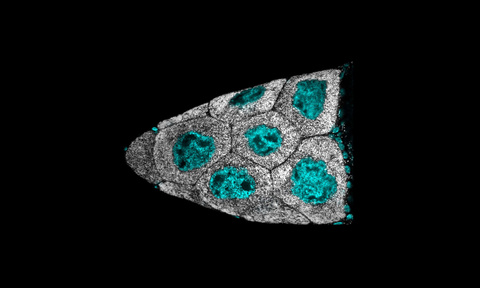A team of researchers from the University of Iowa Carver College of Medicine and the University of Rochester have published new findings on a process during egg development that could have implications for human fertility.

It was previously observed that lipid droplets—structures that store fat for energy inside of cells—build up during a certain stage of egg development, but the reason for this process was not well understood. By studying the process in fruit flies, researchers determined that enzymes on the lipid droplets act to produce a class of signaling molecules called prostaglandins. Prostaglandins stimulate actin cytoskeletal remodeling necessary for egg maturation. Without this signal, the egg will be defective, causing infertility.
“The findings were unexpected,” says Tina Tootle, PhD, UI professor of biology and anatomy and cell biology. “Finding that lipid droplets have this role in the simple fruit fly suggests this is an ancient mechanism. Thus, it is likely this mechanism is used across organisms and cell types.”
Tootle’s lab focuses on prostaglandins and their biological effects. Her team’s contribution to the study was critical in drawing the connection between lipid signaling and egg development.
“Our findings have implications for human health and underlying causes of dysfunctions and disease,” Tootle says. “In most organisms, including humans, eggs build up lipid droplets during their development. There is clear evidence that the level and quality of these lipids are essential for fertility. Our findings provide key insights into human reproduction.”
The paper was published June 8 in Development.
Image credit: A microscope image of lipid droplets (in white) on a follicle, the structure that makes eggs, of a fruit fly. University of Rochester image / Jonathon Thomalla